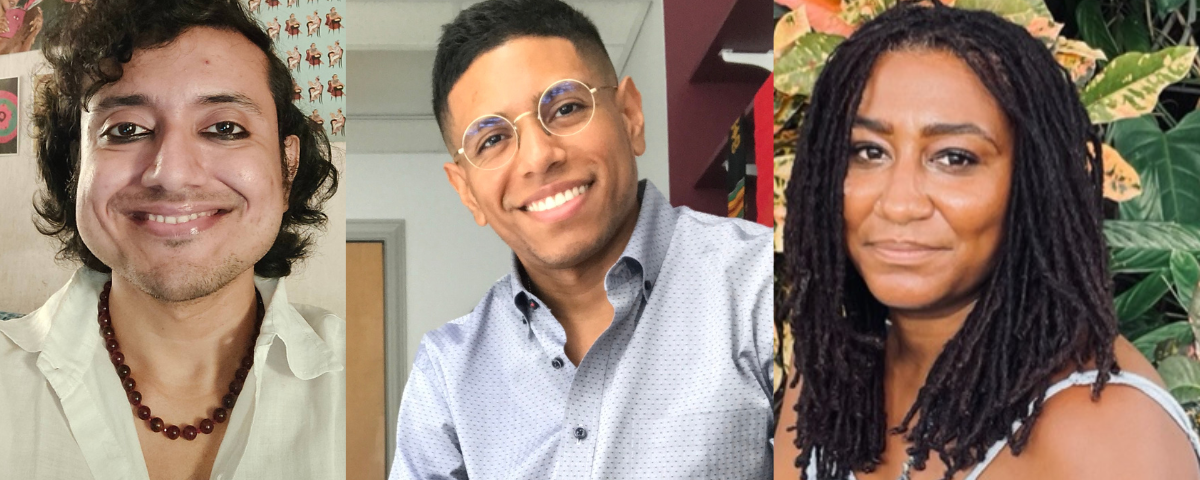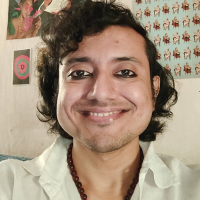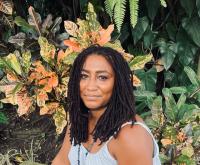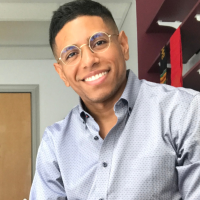Meet Our New Faculty
July 05, 2022

WGSS welcomes three new faculty to the department.
We are excited to introduce our new faculty joining us for the 2022-2023 school year.
Sayan Bhattacharya
Sayan Bhattacharya earned their doctorate in Feminist Studies from the University of Minnesota in June 2022. Their current research is an ethnographic and archival exploration of various improvisatory and innovative strategies that Indian trans communities deploy to make life in an environment saturated by violence. These effortful strategies range from gestures that seek pleasure, negotiations with the nation state on demands of welfare to the performance of care labor for each other and devising dark humor on death that help trans people not only endure violence but also to refuse its overdeterminations of trans life. Sayan stages conversations between anthropologies of the everyday, trans, queer and critical disability studies scholarship on care and anti-caste literatures to study the efforts needed to reproduce an everyday that can be inhabited. Their research has appeared in Radical History Review, Global Public Health, Transgender Studies Quarterly, South Asian Multidisciplinary Academic Journal, QED and GLQ: A Journal of Lesbian and Gay Studies among others. A chapter from their thesis has just won a best essay award at the British Association of South Asian Studies. In a second research project, Sayan is tracking the various syncretic traditions of spirituality that is prevalent across trans communities in eastern India that trouble notions of the state, sovereignty and religiosity. Sayan also volunteers with several community led trans and disability rights organizations in West Bengal in India.
Zenzele Isoke
Zenzele Isoke is a black feminist theorist, urban ethnographer, and political storyteller. Drawing from the ideas of black decolonial thinkers, Isoke writes the contemporary history of cities through the political struggles of self-identified black/queer women of the African diaspora. Writing across the fields of geography, political science, and urban anthropology, her scholarship spans several cities in the U.S., Middle-East, and the Caribbean. Her book new project: Unheard Voices at the Bottom of Empire develops a set of “counterpoetic” writing practices to theorize and explore black feminist politics through the mediums of collaborative art-making, breath and meditation, and conventional grassroots organizing in racially segregated urban spaces. She is author of Urban Black Women and the Politics of Resistance (Palgrave 2013). Her writing has been featured in several peer-reviewed journals and anthologies including Souls: A Critical Journal of Black Politics, Culture and Society, Transforming Anthropology, Gender, Place and Culture, among others. She is also the mother of two teenaged black girls, a (slowly) rising poet, and organizer in her own right.
Will Mosley
Will Mosley (he/they) is an Assistant Professor in the Harriet Tubman Department of Women, Gender, and Sexuality Studies at the University of Maryland, College Park. He is a cultural critic who specializes in Black cultural studies, Black queer theory, and feminist theories of tenderness. In addition, he works in the fields of affect studies, critical HIV studies, medical humanities, poststructuralism, and social movement theory.
Dr. Mosley has work featured or forthcoming in Feminist Theory, Frontiers: A Journal of Women Studies, Archeion: Journal of Queer Archives, Black Perspectives, The African American National Biography, NANO: New American Notes Online, Black Revelry: In Honor of The Sugar Shack, and E3W Review of Books. His research has been supported by the Mellon Foundation, The Schomburg Center for Research in Black Culture, the School of Criticism and Theory at Cornell University, the African American Intellectual History Society, the Humanities Institute at Wake Forest University, and the John L. Warfield Center for African and African American Studies at UT-Austin.
Winner of the 2017 Lora Romero Memorial Award for Research in Race, Ethnicity and Gender from the Center for Women’s and Gender Studies at the UT-Austin, the scope of Dr. Mosley’s work is captured in their current book project, tentatively titled Tenderness: The Work of Black Queer Expression. Tenderness examines notions of tenderness, their relationship to hegemony, and their impact across culture, history, and in the national imaginary. In addition, Tenderness shows how Black queer expressive culture—in literature, music, podcasts, and visual cultures—can disrupt exclusionary definitions of tenderness in favor of radically inclusive alternatives.
He received his B.A. in English from Amherst College and a PhD in African and African Diaspora Studies with a Graduate Portfolio in LGBTQ Studies from the University of Texas at Austin. Before arriving to the University of Maryland, he held a professorship at Wake Forest University.




